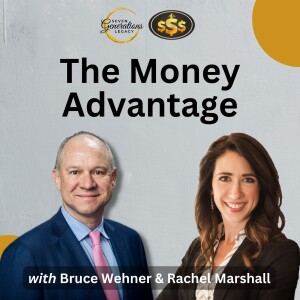
Becoming Your Own Banker, Part 5: The Cost of Capital
 2023-05-29
2023-05-29
Download
Right click and do "save link as"
https://www.youtube.com/watch?v=OWptb6M-_RM
In this fifth installment of the "Becoming Your Own Banker" series, uncover the hidden cost of capital that can make or break your financial future. Find out the benefits of having control over your debt. Get insider information on the cost of capital and become your own banker.
The Cost of Capital: You’re Always Paying InterestInfinite Banking is Like a BusinessBuild a Sustainable PolicyWhere Do Policy Costs Go?The Cost of Capital and Company ResponsibilityThe Cost of Policy LoansBook A Strategy Call
The Cost of Capital: You’re Always Paying Interest
Whether you realize it or not, there’s always an interest cost. As Nelson Nash says, you either pay it, or you pass it up. What this means is that any time you spend money, even if you’re not financing it at a cost, you’re losing the ability to earn interest on it, too. So, at the end of the day, there is always a cost of capital to your financial decisions.
Another way of thinking about this is opportunity cost: What is the cost of making one decision over another? And this has a bigger impact on your life than you think.
The Infinite Banking Concept can help with this because it reduces the cost of capital. When you leverage your policy with a policy loan, you can finance something while still earning compounding interest on the full capacity of your Cash Value. This is a powerful shift that allows you to optimize your financial decisions.
Infinite Banking is Like a Business
[08:35] “I think we mentioned this before; Infinite Banking isn’t something you just try… It does work the way you think it works if you think about it as building your own business. You don’t just open your doors the very first day and all of a sudden people just come into your business and you’re profitable right away. You have all this cost of startup. It’s the same way with the Infinite Banking Concept.”
If you want to start an IBC policy, you’ve got to give it a fair shot. It takes some time to build up your cash value and hit that “break-even” point. Part of the reason your policy isn’t immediately “profitable” is because the insurance company front-loads the policy costs in the first decade or so. They’re taking a risk on insuring you, and if you die tomorrow, they have to pay whatever they agreed to without receiving a single additional cent. To mitigate some of this risk, the ratio of premium that goes to policy costs vs. equity is skewed. As that risk falls off, those costs become less and less.
Build a Sustainable Policy
Does this mean that IBC isn’t good? Of course not. It should actually comfort you, as a partial owner, that the insurance companies are running their business sustainably. You want your insurance company to be successful so that your policy can be successful. And that takes time.
Life insurance is a contract. When you agree to pay premiums, the insurance company agrees to take care of everything else. If it’s in the contract, you can count on it. And on top of that, your contract cannot change. If there’s anything you can trust, it’s your life insurance contract. More importantly, you are the owner of the contract, not the insurance company. This positions you as the most important player.
No two cars perform the same, even if every single thing about them is the same. We can also say this about whole life insurance—even if all variables at the start of the policy are the same as another, the choices you make will change it. All you can do is be a good steward of your policy–-make interest payments on loans (or greater), maximize your PUAs whenever possible, and stay in good standing with your premiums. These decisions will optimize your “mileage” on your policy.
Where Do Policy Costs Go?
We touched on some of the internal costs of life insurance, so let’s dive a bit deeper. What are the costs that you’re paying, and where does it go? Just like your IBC policy is like a business,
view more
More Episodes
Non-Food Franchising, with Jon Ostenson
 2023-04-10
2023-04-10
 2023-04-10
2023-04-10
Becoming Your Own Banker, Part 1
 2023-04-03
2023-04-03
 2023-04-03
2023-04-03
How to Pay Less Tax
 2023-03-27
2023-03-27
 2023-03-27
2023-03-27
Money is Spiritual, with Rabbi Daniel Lapin
 2023-03-06
2023-03-06
 2023-03-06
2023-03-06
18 Summers, with Jim Sheils
 2023-02-20
2023-02-20
 2023-02-20
2023-02-20
10 Reasons You Need Life Insurance
 2023-02-13
2023-02-13
 2023-02-13
2023-02-13
The 5 Rules of IBC, with David Stearns
 2023-01-09
2023-01-09
 2023-01-09
2023-01-09
Tax-Free Retirement is a Bad Idea
 2023-01-02
2023-01-02
 2023-01-02
2023-01-02
012345678910111213141516171819
Create your
podcast in
minutes
- Full-featured podcast site
- Unlimited storage and bandwidth
- Comprehensive podcast stats
- Distribute to Apple Podcasts, Spotify, and more
- Make money with your podcast
It is Free
- Privacy Policy
- Cookie Policy
- Terms of Use
- Consent Preferences
- Copyright © 2015-2024 Podbean.com




